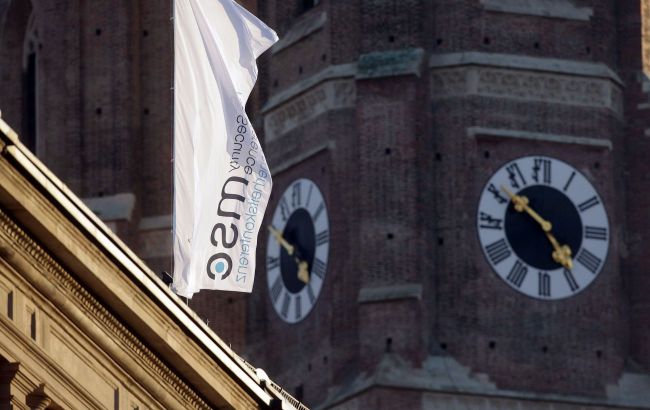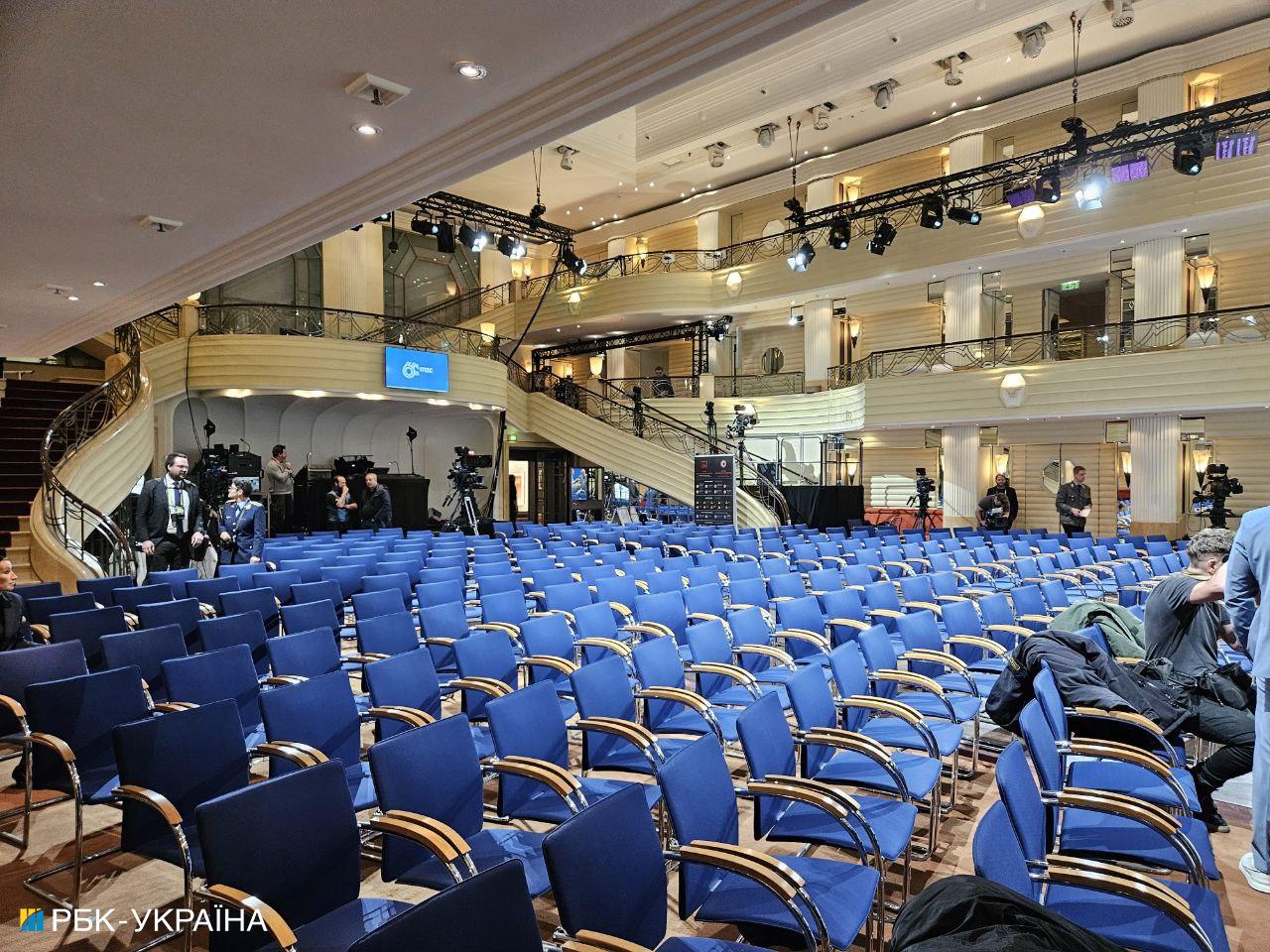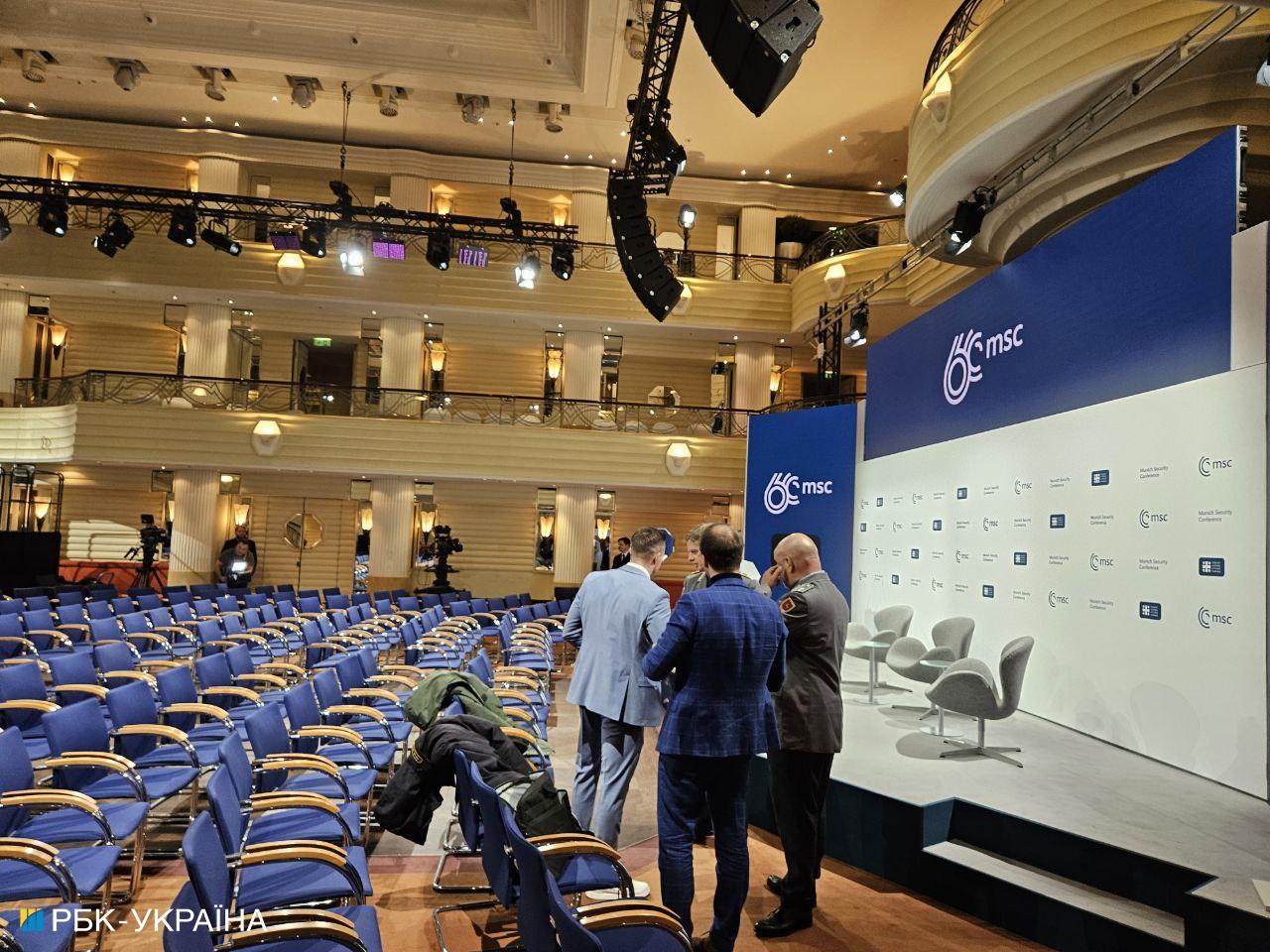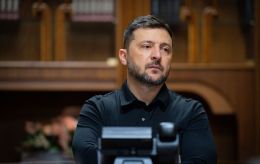Munich Security Conference 2024: Main topics, participants, and what to expect for Ukraine
 Munich Security Conference MSC (photo: Getty Images)
Munich Security Conference MSC (photo: Getty Images)
Today, February 16, the Munich Security Conference starts. Over 150 world leaders are gathering in Germany to discuss issues in global security. Aid to Ukraine will be one of the main topics.
Here are details on the Munich Conference, its agenda, and who will participate this year.
Sources: official portal of the Munich Security Conference, MSC 2024 report, Reuters, Politico, The Guardian, the President's Office of Ukraine.
What is known about the conference
-
The Munich Security Conference (MSC) is an international platform for discussing security issues.
-
The conference in 2024 is a jubilee one. Exactly 60 years have passed since the first similar event in Munich.
-
MSC 2024 will take place between February 16 and 18 at the Bayerischer Hof Hotel.
-
The main discussion document of the forum is the Munich Security Report. This year it is titled Lose-Lose?, which can be translated as Do All Lose?
-
On the agenda are global security crises, armed conflicts, migration issues, climate, and the development of modern technologies.
-
Support for Ukraine and speeding up military aid from allies are among the leading topics.
-
The conference will be attended by over 50 world leaders and 100 ministers.
-
For the first time, countries of the Global South will be broadly represented at the MSC.
-
President Volodymyr Zelenskyy will speak at the Munich Security Conference on the second day, February 17.
MSC 2024 topics
The Conference will address a range of current issues, including Europe's role in security and defense, a new vision of the global order, the consequences of climate change, technological progress, and more.
.jpg)
Photo: Venue of MSC 2024 (RBC-Ukraine)
Every year, on the eve of the Munich Security Conference, a security report is published, the information from which becomes the subject of wide discussions among participants.
As the conference chairman, Christoph Hoysgen, noted, this year's report reflects a downward trend in global politics marked by increasing geopolitical tensions and economic uncertainty, Countries are cooperating less and are more likely to prioritize their interests, so in most current crises, all involved parties lose out, and political uncertainty is on the rise.
The report highlights the following topics:
- the ongoing Russian war against Ukraine which requires Europe to invest finances and efforts in its defense and in supporting Ukraine;
- increasing tensions in the Indo-Pacific region, particularly regarding China's influence;
- escalating violence in the Middle East. The report discusses terrorist attacks by Hamas and concerns about the possibility of war expansion in the region;
- a series of state coups in African countries, the war in Sudan, which has led to a humanitarian crisis;
- cooperation with Global South countries;
- new climate policy;
- technological development - competition in strategic technologies (artificial intelligence, semiconductors).
Participants
The Munich Security Conference will be attended by approximately 150 leading global politicians at the level of heads of state and government, as well as ministers of foreign affairs and defense.
Among the invitees are EU leaders, and senior U.S. officials, including Secretary of State Antony Blinken, and Vice President Kamala Harris. The event will also be attended by NATO Secretary-General Jens Stoltenberg, UN Secretary-General António Guterres, and European Commission President Ursula von der Leyen.
Although the full list of participants has not been announced before the start of the conference, Western media reported that Israeli President Isaac Herzog, Palestinian Prime Minister Mohammad Shtayyeh, Azerbaijani President Ilham Aliyev, and Myanmar Foreign Minister Zin Mar Aung are planning to visit Munich.
Moreover, this year the conference will feature more representatives from Global South countries and discussions with them. The participation of Latin America and Southeast Asia is expected - regions that have been underrepresented in previous years.

Photo: Over 150 country leaders to participate in the conference (RBC-Ukraine)
Conference chairman Christoph Heusgen announced that he also expects high-ranking Chinese officials to attend. It should be noted that last year, the forum was attended by Chinese Foreign Minister Wang Yi.
However, there will be no officials from Russia at the MSC, just as there were none last year. Organizers did not invite representatives of the Iranian government either. Heusgen explained that Russian and Iranian officials showed no serious interest in negotiations. However, non-governmental organizations from both countries have been invited.
What will be discussed about Ukraine
Aid to Ukraine in repelling the full-scale aggression of the Russian Federation is expected to be one of the key issues at the conference.
"But we must do everything to ensure that Ukraine receives the weapons and military aid it needs to successfully confront the Russian aggressors and expel them from its territory," said Christoph Heusgen, Chairman of the Munich Security Conference.
According to him, if Putin is not stopped in Ukraine, Russia may unleash a major war against NATO. Moldova and the Baltic countries are likely to be the next targets of Kremlin aggression. Therefore, support for Ukraine is a key issue for European security.
British Foreign Minister David Cameron will call for an acceleration of aid to Ukraine. As reported by The Guardian, the British minister in Munich will raise the issue of how European countries can increase defense production and speed up plans to transfer profits from Russian assets frozen by Europe to Ukraine.
The importance of assistance to Ukraine is also emphasized in the annual security report of the Munich Security Conference, but there is also talk of war fatigue. The report notes that nearly two years of war have significantly reduced fear of Russia in the world.
The authors note that a possible victory for Russia would set a dangerous precedent for conflicts outside Europe, showing that border integrity no longer exists and that aggression and war crimes are justified. Therefore, decision-makers in Europe and the U.S. must combat Ukraine fatigue, help Kyiv achieve victory, and reduce the gray zone.
The conference will focus on Ukraine's accession to NATO and the EU. These issues are also addressed in the MSC 2024 report.
It is noted that EU members and NATO should actively support countries on the path to membership. For example, the EU should specify the idea of gradual accession and reward progress in reforms with gradual access to its institutions and policies. NATO allies should, if necessary, continue bilateral security guarantees at an intermediate stage until accession.

Photo: Ukraine will be among the key topics in Munich (RBC-Ukraine)
Zelenskyy at the Munich Conference
Ukrainian President is scheduled to speak on the second day of the Munich Security Conference on February 17. Earlier, Volodymyr Zelenskyy announced that Ukraine would present its vision for 2024 at MSC 2024.
"Ukraine will present its vision for this year. A decisive year in many ways – the vision of prospects that all of us, all free nations, have, and which should not be lost," he announced.
On the sidelines of the conference, several bilateral meetings of the Ukrainian president are planned, including with U.S. Vice President Kamala Harris, Czech President Petr Pavel, Danish Prime Minister Mette Frederiksen, Dutch Prime Minister Mark Rutte, and other leaders of states and major businesses.
Zelenskyy will visit Munich as part of his trip to Europe. During the visit, he plans to meet with Chancellor Olaf Scholz and President Emmanuel Macron. As a result of these meetings, the signing of bilateral security agreements between countries may take place.

